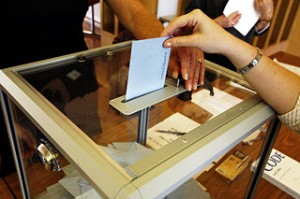
With the recent decision by Standard & Poor’s to downgrade our nation’s AAA bond rating, the chaotic gyrations of the stock market, and the imminent possibility of a double dip recession, it’s difficult to find a single story that embodies the totality of the economic and fiscal problems we’re currently facing as a country. That’s why I’d like to highlight a small, yet significant, item that illustrates the fiscal irresponsibility which characterized the housing bubble in this country-a key component of the current economic downturn. One of the ways that mortgage lenders, government institutions, government-indemnified agencies and others sought to bolster the artificially inflated housing market was by looking for potential home-owners who posed huge credit risks. That part of the story is well documented, and one group of home-buyers that were eagerly recruited were those individuals and families living in this country illegally.
As this a NPR report notes, the ability of these borrowers to repay loans was not questioned, despite the fact that they had relied, in large measure, upon fraud and deception in order to enter into, remain, and work in the United States. The scale of this problem was sketched out in a column by Michelle Malkin at the height of the 2008 market free fall, which examined the means through which mortgage-fraud was facilitated, either inadvertently or intentionally, through the Federal Housing Authority, the National Council of La Raza, regional banks and others with a vested interest in obtaining mortgage loans for illegal aliens. Although the size of this problem is small in comparison to the broader housing crisis, in which over 14 trillion dollars of mortgage debt is outstanding, it does serve to illustrate just how reckless loan officers, lenders, government and government-supported agencies were in attempting to sustain the chimerical housing boom over the past decade.
Furthermore, an eye-opening report from the English First Foundation demonstrates how mortgage loans were routinely granted to individuals with Individual Taxpayer Identification Numbers, which are used for federal tax reporting and-as the English First summary points out-are frequently employed by illegal aliens who do not have documents validating their identity. It then goes on to explore how politicians and special interest groups inserted a provision in 2007 amnesty legislation that would have increased our exposure to toxic subprime mortgages exponentially in an attempt to restart the housing industry, which was already faltering by that point in time. And while there have been efforts in Congress to rectify the loose lending policies-at least by government sponsored entities-the devastating impact of the subprime mortgage crisis and ensuing housing bust continue to be felt worldwide. The shortsighted policies pursued by public and private institutions, as well as special interest groups such as La Raza, increased our exposure to toxic assets, and serve as a stark reminder of what happens when political correctness, government-driven directives-such as the Community Reinvestment Act-and greed intersect. As government bureaucrats and politicians seek the next artificial stimulant to a depressed economy, it’s a lesson we should all heed.







Recent Comments